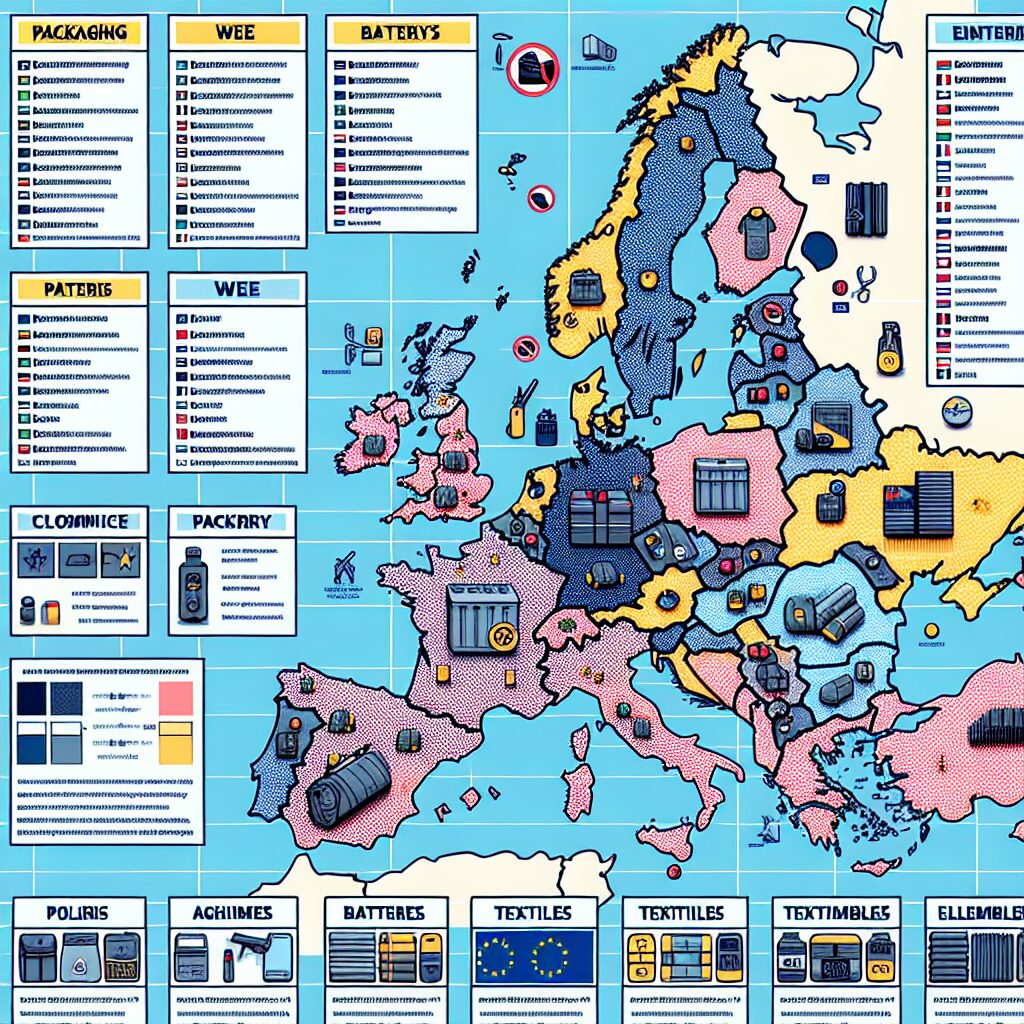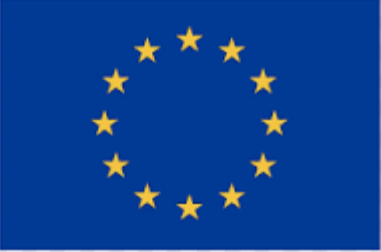About eldris
epr.eldris.ai leads the EPR sector, in fast, automated, AI Agent EU packaging, WEEE, and Battery Compliance for Brands, E-Commerce and Service based businesses expanding into the EU.
In This Article
- LUCID registration is mandatory for all sellers placing packaging into Germany’s market.
- You must secure both LUCID registration and a dual system contract for compliance.
- Non-compliance can result in heavy fines and sales bans.
- Even small businesses and dropshippers are subject to VerpackG rules.
- Ongoing reporting and accurate data declarations are essential.
- Tools and support are available to simplify the compliance process.
What Is the LUCID Packaging Register?
Overview of the German VerpackG Law
The German Packaging Act (Verpackungsgesetz or VerpackG), which came into full effect on 1 January 2019, mandates that all manufacturers and initial distributors of packaged goods register with the LUCID Packaging Register. Managed by the Central Authority called the Zentrale Stelle Verpackungsregister (ZSVR), the LUCID Registration Process ensures accountability in packaging waste disposal and recycling.
Step-by-Step Guide: How to Easily Register for a LUCID Number in Germany
This regulatory framework places the onus on producers—domestic and international—to declare packaging volumes and pay into recycling schemes. Its main aim is to foster transparency and responsibility across supply chains. Failure to comply can lead to fines of up to €200,000, marketing bans, and mandatory delisting from major marketplaces like Amazon and eBay.

Who Needs to Register for LUCID?
Compliance Obligations for Sellers and Manufacturers
Any party placing packaging in the German market for the first time must complete the LUCID Registration Process. This includes manufacturers, online retailers, importers, and even foreign businesses shipping directly to German customers. If you are sending anything that constitutes packaging—such as shrink-wrap, cardboard boxes, plastic envelopes, or fillers—you are considered an “initial distributor” and are thus obligated to register.
Understanding LUCID Registration: Is It Mandatory for Amazon Sellers?
Even small-scale sellers operating through platforms like Etsy, Shopify, or Amazon must comply. Contrary to popular belief, there is no revenue exemption; responsibilities remain the same for micro-entrepreneurs and global conglomerates alike.
To be compliant, registrants must not only sign up with the LUCID system but also enter into a contract with a dual system to finance the collection and recycling of packaging waste. Both of these steps must happen before any packaging is placed in the German market.
“If you sell even a single product shipped to a customer in Germany, compliance with the LUCID Registration Process is non-negotiable.” — ZSVR Spokesperson
Why LUCID Registration Is Now Mandatory
One of the main reasons the LUCID Registration Process is now strictly enforced is due to growing environmental concerns. With increasing levels of packaging waste across the EU, Germany has taken a firmer stance on corporate responsibility. As of July 2022, the amended VerpackG extended obligations to several new categories of sellers—particularly online merchants and fulfilment service providers.
Shipping to Germany: Do You Need a LUCID Number?
These updates solidify LUCID’s necessity. The legislation now covers packaging previously considered exempt. For example, transport and reusable packaging might not require licensing fees, but a LUCID registration is still mandatory to declare their use.
Furthermore, the ZSVR cooperates directly with platforms like Amazon and Otto to automatically enforce listing restrictions for non-compliant sellers. As a result, complete registration is no longer optional but an essential aspect of doing business in Germany.
Step-by-Step: How to Register for LUCID
Embarking on the LUCID Registration Process requires several careful steps:
The Cost of Compliance: Is LUCID Registration Free?
- Create an Account: Visit the official LUCID platform at In-depth background and instructions on the LUCID Packaging Register. Register under your company’s legal name, providing VAT and legal address details.
- Data Entry: Input your contact information, commercial register number, and packaging types.
- Declare Packaging: Estimate the annual weight for each packaging material entering the German market.
- Join a Dual System: Sign an agreement with a licensed dual system provider. Prices vary, so compare contracts for optimal pricing efficiency.
- Enter System Details: Log your dual system contract (e.g., Interseroh, Der Grüne Punkt) into the LUCID account as part of compliance documentation.
- Confirm and Submit: Once all data is verified, submit your registration. You will then receive a unique LUCID registration number.
This number must be shared with your trading partners and included in your T&Cs or online shop details. It functions as your public compliance badge.
Understanding LUCID ID and Producer Responsibility
Your assigned LUCID ID confirms your listing in the official public register. This ID is searchable by buyers, competitors, and regulators—ensuring transparency throughout the supply chain. Remember, registration alone does not equal full compliance; you must also participate in a dual system and regularly report packaging volumes.
The Importance of LUCID Registration for Packaging Compliance in Germany
The concept of Extended Producer Responsibility (EPR) is at the heart of the scheme. EPR dictates that those who profit from packaged products must also bear the cost of proper recycling and disposal. This not only incentivises sustainable design but also discourages unnecessary material use.
Accurate, timely documentation and declarations are essential. Annual and semi-annual reports must reflect your actual packaging used. Any discrepancies noted during audits can result in severe penalties.
Common Mistakes During LUCID Registration
Missteps That Could Lead to Penalties
Many businesses fall into traps during the LUCID Registration Process that can expose them to legal liabilities. Here are the most common pitfalls:
Navigating the LUCID Packaging Register: What You Need to Know
- Registering Without Licensing: Simply signing up for LUCID without securing a dual system licence is insufficient and non-compliant.
- Incorrect Packaging Declarations: Under-reporting or misclassifying packaging materials may result in audits or penalty charges.
- Failing to Update Changes: If your business address, legal distributor, or volume estimates change, you must log the updates immediately.
- Late Registration: Businesses must complete the process before distributing packaging—not afterwards.
- Assuming Marketplace Coverage: Amazon or other platforms do not handle your registration; they merely verify your compliance.
Paying close attention during the process avoids future complications. Always double-check your data and maintain a compliance calendar.
How to Stay Compliant Long-Term
Maintaining ongoing compliance with the VerpackG Act means closely monitoring your packaging activities. Here are key practices to ensure continued adherence:
Essential Steps for LUCID ID Registration in Germany: A Quick Overview
Establish an internal system to track packaging outputs on a regular basis. Work with logistics teams to assess material types and volumes, and ensure the data aligns with your LUCID submissions. Additionally, calendar reminders are essential for annual reporting deadlines—typically by mid-May of the following year.
You should also conduct regular audits of your supply chain partners. This ensures they are not compromising your sustainability commitments. Automated ERP integration or dedicated software tools can simplify this monitoring process significantly.
Regulatory updates are frequent, so subscribing to newsletters from Learn more about EU Packaging and EPR Compliance or ZSVR can keep you informed. A proactive stance is your best defence.
LUCID for Amazon and E-Commerce Sellers
E-commerce sellers often underestimate their VerpackG obligations, particularly when selling through large platforms. The LUCID Registration Process applies equally to Amazon, eBay, Etsy, and even Instagram Shop vendors if they sell into Germany.
Everything You Need to Know About LUCID Numbers in Germany
Amazon now requires sellers to provide valid LUCID numbers in their seller accounts. Failure to comply leads to immediate product delisting. Even merchants using Fulfilment by Amazon (FBA) must register, as Amazon is not considered the initial distributor. The same rule applies to dropshippers and white-label sellers who brand existing products.
To stay in good standing, allocation of responsibility must be established early. You must ensure your German-language legal pages clearly present your LUCID number and dual system partner.
Costs and Deadlines for VerpackG Compliance
While LUCID registration itself is free, financing your packaging waste disposal is not. Dual system fees depend on estimated tonnage and the material type—plastic being the most costly. For micro-entities, plans can start around €50–€100 per year. Larger businesses may pay several thousand euros annually.
Avoid Legal Penalties: Why LUCID Registration is Vital for Your Business
Deadlines include:
- Before Shipping: Registration must be completed prior to placing packaging in the German market.
- Annual Volume Reporting: Deadline typically falls in May of the year after distribution.
- Volume Adjustments: Any material change must be immediately reported.
Non-compliance penalties are severe. Beyond financial fines, your listings may be removed, and legal action may ensue. Early planning ensures timely registration and reporting.
Where to Get Help or Tools for Compliance
Understanding the LUCID Registration Process can be daunting for new or international sellers. Fortunately, a wide range of support is available. The official ZSVR website offers guides and FAQs in multiple languages, while many dual system providers also supply compliance calculators and packaging estimators.
Checklist for Getting and Maintaining LUCID Registration Compliance
Professional compliance consulting is advisable for businesses with varied product ranges and complex logistics. You might also explore packaging compliance software, which integrates with your inventory system to auto-generate declarations. Trusted service partners can help you avoid last-minute errors and maintain consistent filings.
For curated compliance tools, visit Read a related article to explore accredited providers and software integrations.
Conclusion: Stay Ahead with Simple LUCID Compliance
[CONCLUSION_CONTENT]
Navigating the LUCID Registration Process is crucial for any business selling packaged goods in Germany. From online sellers to multinational manufacturers, the pathway to compliance is straightforward—but only if executed correctly. Be proactive by registering early, double-checking packaging data, and using trusted systems providers. Compliance does not merely protect against penalties; it positions your brand as environmentally responsible in a market that values sustainability.
Great guide on understanding-lucid-registration-for-germanys-verpackg – Community Feedback
What is the Lucid packaging Law Germany?
The LUCID Packaging Register is a central registry established under the German Packaging Act (VerpackG) to record manufacturers of packaged products and monitor their packaging licensing obligations.
What is a lucid identification number in Germany?
A LUCID number demonstrates that a company complies with the German Packaging Act by registering its packaging with the relevant authorities.
Do I need a Lucid number to ship to Germany?
Yes, as of July 2022, anyone shipping packaged goods into Germany, including wholesale and online retailers, must register on the LUCID Packing Register.
Is Lucid registration free?
Yes, LUCID Packaging Register registration is free and completed online. Producers, distributors, importers, and e-commerce sellers are all required to register.










